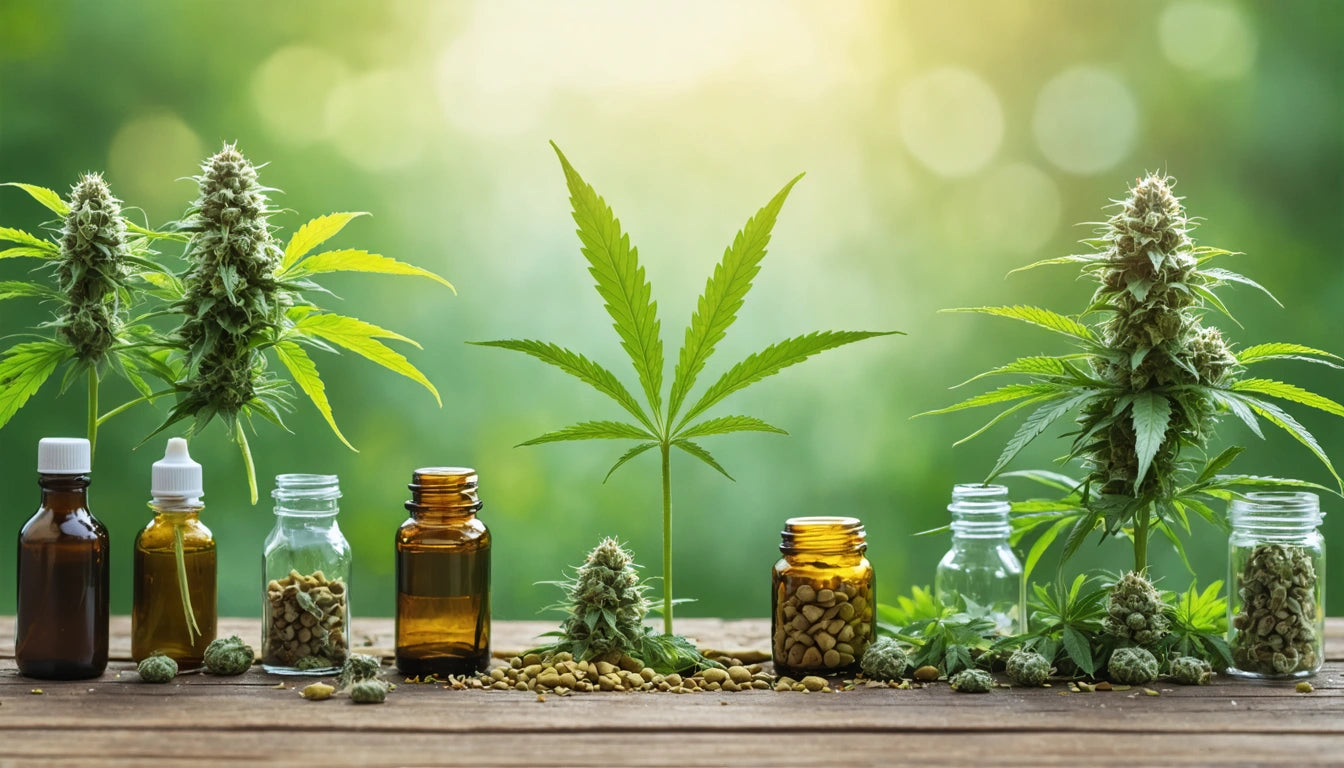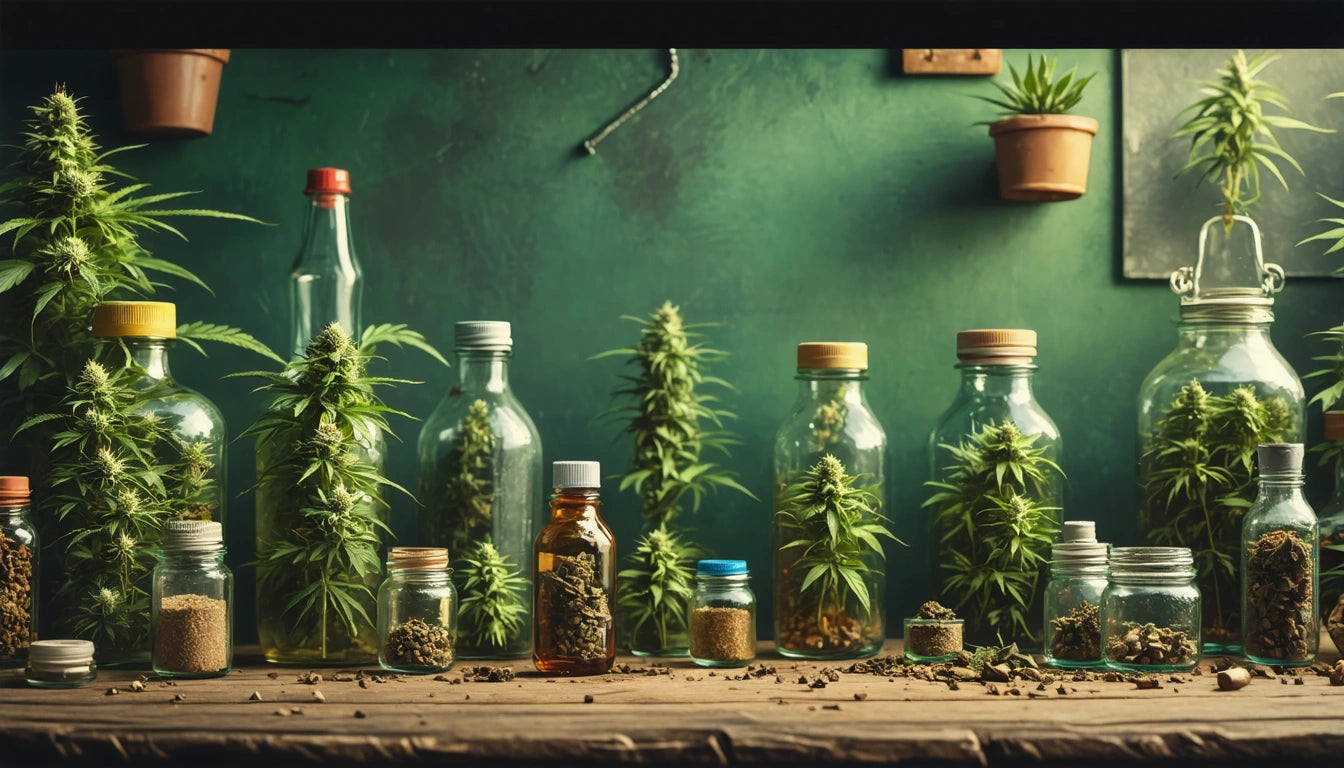Table of Contents
- The Science Behind the Cannabis High
- How Cannabis Interacts with Your Endocannabinoid System
- Factors That Affect Your Cannabis High
- Why Weed Doesn't Get You High Anymore: Understanding Tolerance
- Enhancing Your Cannabis Experience
- Managing an Intense High
- The Future of Cannabis Research and Personalized Experiences
Understanding How and Why Weed Gets You High: A Comprehensive Guide
Cannabis has been used for thousands of years for both medicinal and recreational purposes. Today, as legalization spreads, more people are curious about exactly how weed gets you high and the science behind these effects. Whether you're wondering why weed doesn't get you high anymore or what chemicals are responsible for cannabis's psychoactive properties, this guide explores the fascinating interaction between cannabis and the human body.
The Science Behind the Cannabis High
The primary compound responsible for cannabis's psychoactive effects is delta-9-tetrahydrocannabinol, commonly known as THC. When you consume cannabis, THC enters your bloodstream and eventually reaches your brain, where it binds to specific receptors.
But THC isn't working alone. Cannabis contains over 100 cannabinoids and numerous terpenes that work together in what scientists call the "entourage effect." This means the overall experience isn't just about THC, but how all these compounds interact.
Key Compounds That Contribute to Your High
- THC: The primary psychoactive compound that produces the feeling of being high
- CBD: Non-intoxicating but can modify THC's effects and reduce anxiety
- Terpenes: Aromatic compounds that may influence the type of high you experience
- Minor cannabinoids: CBG, CBN, and others that contribute to the overall effect
As explained in this detailed breakdown of cannabis components, the specific combination of these compounds determines whether you'll experience an energetic, creative high or a relaxed, sedative effect.
How Cannabis Interacts with Your Endocannabinoid System
The reason cannabis affects humans is because our bodies contain an endocannabinoid system (ECS), a complex cell-signaling system that plays a role in regulating sleep, mood, appetite, memory, and reproduction.
When you consume cannabis, THC binds to cannabinoid receptors called CB1 (primarily found in the brain) and CB2 (found throughout the body). This binding disrupts normal endocannabinoid signaling, resulting in the characteristic "high" feeling.
Factors That Affect Your Cannabis High
Not everyone experiences cannabis the same way. Several factors influence how weed gets you high:
1. Consumption Method
How you consume cannabis significantly impacts your experience. Smoking or vaping delivers THC to your bloodstream quickly, resulting in almost immediate effects. Edibles, on the other hand, must be processed by your digestive system and liver, which converts THC into a more potent form called 11-hydroxy-THC. This explains why edibles often produce stronger, longer-lasting effects than smoking.
2. Dosage and Potency
How much weed gets you high depends on its potency and your individual tolerance. Modern cannabis strains often contain significantly higher THC concentrations than those from decades ago. For consistent dosing, many consumers use precision filling equipment for their cannabis products, especially when preparing edibles or oils where exact measurements are crucial for predictable effects.
3. Individual Biology
Genetics play a substantial role in how cannabis affects you. Some people naturally have more cannabinoid receptors or produce different enzymes that metabolize THC at varying rates. Body composition, metabolism, and even gender can influence your experience.
Why Weed Doesn't Get You High Anymore: Understanding Tolerance
If you've found that weed doesn't get you high anymore, you're likely experiencing tolerance. With regular cannabis use, your body adapts by reducing the number of cannabinoid receptors available or making them less sensitive to THC.
According to research on cannabis tolerance, several factors can contribute to diminished effects:
- Frequency of use (daily users develop tolerance faster)
- Potency of products consumed
- Individual metabolism and genetic factors
- Cross-tolerance with other substances
The good news is that tolerance is reversible. A brief break from cannabis, often called a "tolerance break" or "T-break," can reset your sensitivity to THC.
Enhancing Your Cannabis Experience
If you're looking to maximize your cannabis experience, several approaches can help:
Methods to Increase Effectiveness
- Try different strains: Varying cannabinoid and terpene profiles can produce different effects
- Change consumption methods: Switching between smoking, vaping, and edibles can provide different experiences
- Mindful consumption: Being in a comfortable environment with the right mindset can enhance effects
- Terpene awareness: Certain terpenes may boost THC's effects or create specific experiences
For more detailed strategies, this guide on maximizing your cannabis experience offers practical tips for both novice and experienced users.
Managing an Intense High
Sometimes you may find yourself too high and wondering how to get un-high after smoking weed. If you've consumed more than intended or are feeling uncomfortable, these strategies can help:
- Stay hydrated with water
- Try consuming CBD, which can counteract some of THC's effects
- Use black pepper (sniffing or chewing peppercorns) to reduce anxiety
- Focus on slow, deep breathing
- Remind yourself the feeling is temporary and will pass
For more comprehensive guidance on managing an intense cannabis experience, this resource offers step-by-step techniques to help you come down from an overwhelming high.
The Future of Cannabis Research and Personalized Experiences
As cannabis research advances, we're discovering more about how individual differences affect the cannabis experience. The future likely holds more personalized approaches to cannabis consumption, with recommendations based on genetic profiles, desired effects, and specific health conditions.
Scientists are also exploring the potential of minor cannabinoids and specific terpene combinations to create more predictable, targeted effects. This research may eventually lead to cannabis products designed for specific experiences or therapeutic outcomes, moving beyond the simple indica/sativa categorization.
Understanding how weed gets you high is more than just scientific curiosity. This knowledge allows consumers to make informed choices, whether they're seeking specific effects, managing tolerance, or simply wanting to enhance their cannabis experience safely and effectively.











Leave a comment
All comments are moderated before being published.
This site is protected by hCaptcha and the hCaptcha Privacy Policy and Terms of Service apply.